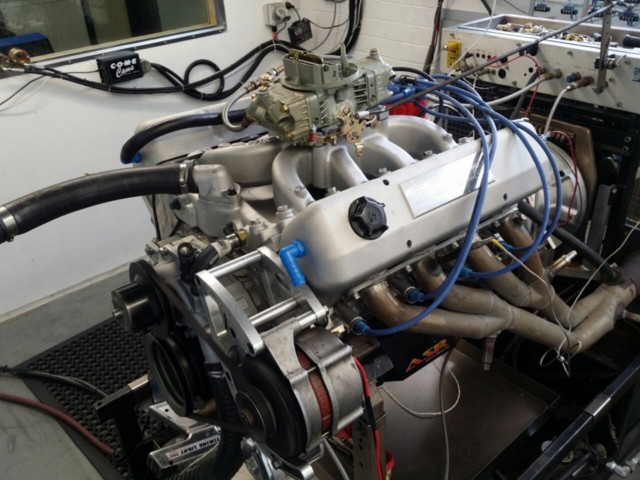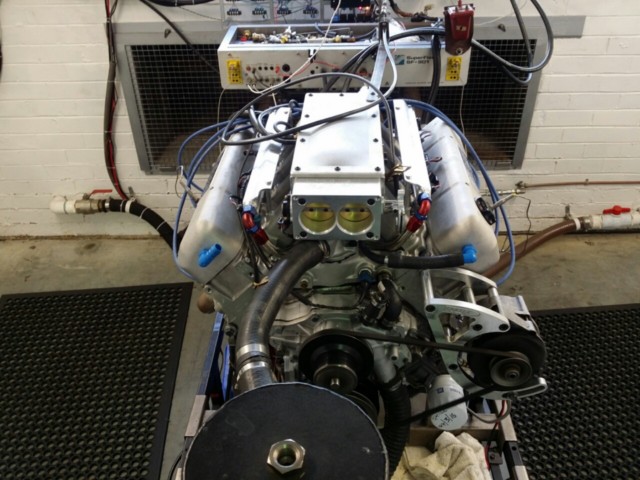

A common question from customers who are building an early Holden V8 equipped car as to whether Carb or EFI induction makes more power. In reality most people who don't have the EFI components ask the question in an effort to come up with an immediate decision maker. Well it's not that cut and dried. The bottom line is that EFI in virtually every instance will provide better driveability in all atmospheric conditions because through the tuning software it can self adjust to a reasonable degree as conditions change. A carb induction has a fixed air fuel ratio, jet sizes and accelerator pump tuning to name only a few adjustable items. As the weather changes, by definition the engine will run a little leaner or richer depending on prevailing ambient conditions. Therefore it will perform more inconsistently with a carb although the difference will not be dramatic unless conditions or altitude changes very dramatically.
Many still believe, wrongly in my opinion that power is everything. We hear many times..."why would I give up the carb for EFI? I can troubleshoot the carb myself but not EFI". Others believe "you must be able to make more power from EFI". while the next pub talk scenario goes to the ridiculous "EFI is not worth the extra expense because a carb can make more power". Well frankly everything said here can be true if each induction is not properly matched to the engine design and tuning, particularly EFI tuning is not does effectively.
The fact however is, this engine was built to a tried and tested formula that works equally well with a carb or EFI. We've developed many good combinations over the years and this one is no exception whether you stay with the old school carb or modernize with EFI. This engine combination has our Premium 383 Stroker kit with Wiseco forged pistons, our own 4340 steel "H" beam stroker design con rods and the toughest cast crank in the business with its 3.750" stroke and eight counterweights to keep it rigid and strong. The top end comprises our off the shelf unported 590 Series alloy VN style heads and either our 4BT single plane carb intake manifold with #4779 Holley 750 double Pumper carb or our EFI Twin Throttle Body EFI intake. The power difference is frankly almost nothing with both setups optimised on the same day. We began with the carb setup and switch to the EFI later in the day when weather conditions actually changed only a small amount. Even the small weather change was reflected in a slight power and torque difference but from a comparison point of view both inductions produced virtually identical power and torque at the same rpm spread. With the carb we saw 481 BHP @ 5750rpm and 469 FT.LBS torque @ 4750 rpm. With EFI in slightly better conditions we saw 485 BHP and 475 FT.LBS torque at the same rpm levels.
After running the engine on its final dyno day the conditions atmospherically were much better with a very high pressure barometric reading and low humidity. The ambient temperatures were much the same as the previous test day but the difference was significant when the engine was fed some denser drier air. On that final test power went up to 495 BHP @ 5750 and 480 FT.LBS torque @ 4750 rpm. If we'd have fitted the carb on this much better day the same power increase would have eventuated. What does this tell us?
1) Power difference between either induction in similar conditions is almost immeasurable.
2) The real difference between EFI and carb inductions is the fact that driveability and response to throttle will nearly always be better with EFI and so will fuel economy potential. The outright power on a dyno can not measure this for you. It is simple seat of the pants feel and the difference is obvious when you drive the same car with the same engine and the two different inductions.